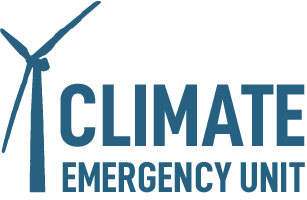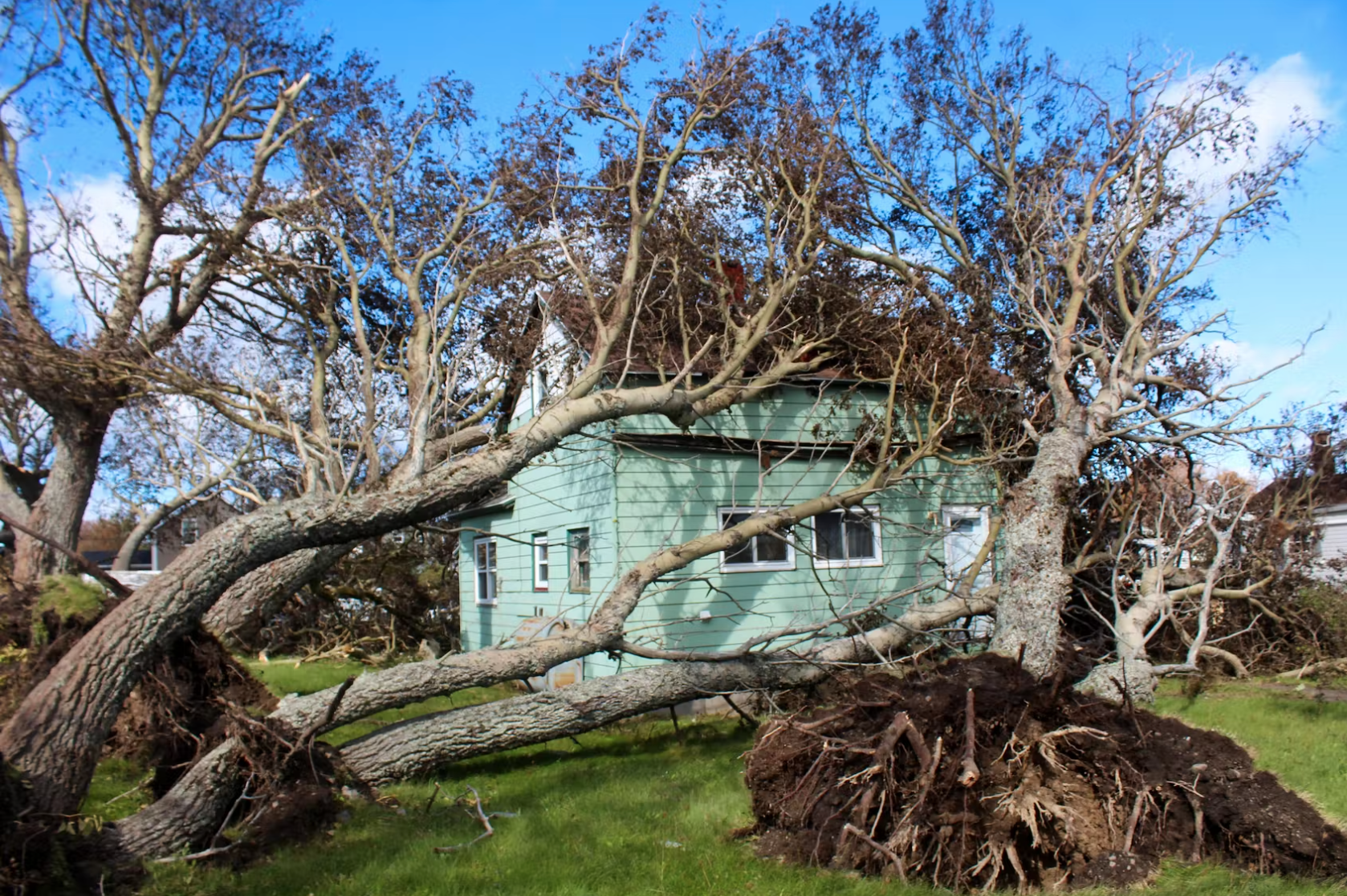DIY time — no one is coming to save us from climate catastrophe
FROM SALTWIRE: A fallen tree rests on Sterling Road home in Glace Bay. — Ian Nathanson/SaltWire Network file photo
Note: This article was first published in the SaltWire.
Last Friday, Sept. 23rd, was the fourth anniversary of the first global climate strike. That same day that hurricane Fiona, “the most intense storm on record,” according to Accuweather, made landfall in Nova Scotia, cancelling the climate strike so that everyone could batten down the hatches.
We’ve experienced storms before. Just 19 years ago, hurricane Juan hit our shores and we weren’t ready — Atlantic Canadians hadn’t yet experienced such a destructive storm. We learned our lesson though, and when Dorian hit we all stocked up on non-perishables, candles, flashlights and books. In preparing for Fiona, there was no question about what to do. Hurricanes and post-tropical storms are a part of our lives now, and science shows that this is due to human-caused global heating.
I’ve been lucky. Like many in Atlantic Canada who lost power, internet, data and cell networks during the storm, I’m still reeling as I watch the news come in. The morning I finally was able to connect to my mother on P.E.I., her voice broke as she told me about the devastation caused by Fiona, especially to the beaches.
Before she called, I had been listening to CBC Radio, and a woman in Port aux Basques was crying because hers was one of the 73 homes lost to the waves during the storm. Another gentleman who spoke before her said he would never live on the water again after this, despite having done so his whole life.
After I got off the phone with my mom, a friend texted to ask for advice about her climate anxiety that was sparked by hurricane Fiona.
Port aux Basques Mayor Brian Button speaks with two people whose house was damaged after the arrival of hurricane Fiona in Port aux Basques, N.L. — REUTERS file photo
Fear and anxiety
People are afraid and sad. Some politicians, like Conservative Party of Canada Leader Pierre Poilievre, are taking advantage of this and surging in popularity. They say they are fighting for Canada and freedom, because they know that is what will win them votes, when in reality, they are fighting for the destruction of everything we know, as evidenced by our worsening climate, the housing crisis and extreme unaffordability. For instance, giving relief funds to wealthy power utilities instead of directly to Canadians, when about 30 per cent of Atlantic Canadians experience energy poverty, or celebrating government budget surpluses when thousands of people could use government support to feed their families. Or voting against free dental care for children.
The morning I finally was able to connect to my mother on P.E.I., her voice broke as she told me about the devastation caused by Fiona, especially to the beaches.
I look at the pictures of P.E.I.’s ruined dunes in disbelief. These were the beaches where I grew up, where I drank my first beer, where I had my first “parent-free” camping trips. These were the beaches where I took my friends who were visiting P.E.I. for the first time.
This past weekend, I helped my partner catch and clean mackerel, a skill I learned growing up on an ocean abundant with life. But I am faced with the reality that this is going to change. As oceans warm to a point where scientists are predicting mass extinctions, and hurricanes wash away the beautiful beaches, I wonder if my children will get to have these same meaningful experiences on the land and water that I did.
Same old message
It’s hard to watch our Atlantic Canadian premiers beat the dead horse of carbon pricing when there are tangible and real actions that they can do, united, to prevent the worst of the climate emergency. How many more hurricanes need to hit our shores before they take a united front and call on the federal government for emergency-level action?
We can’t wait for politicians, governments and billionaires to act. Elon Musk is not going to fly us to Mars or save us by making Teslas available to everyone. There is no hero played by Harrison Ford. No one is coming to save us. We have to save ourselves.
But the good news is that we are already doing this. A local example is Halifax/Kjipuktuk Mutual Aid, who built shelters for the growing number of people living on Halifax’s streets without homes. Though they’ve had controversies with their methods of communication, it can’t be denied that Mutual Aid’s action put the local governments under intense heat. The government even started having creative discussions about actually building their own shelters.
The Last Hope Camp on the South Shore of Nova Scotia slowed clear cutting through inventive and community-run action. After skilling themselves with species identification, they performed surveys of the land and identified several species at risk. Their thorough research was able to save big swaths of that ecosystem.
We also know that Indigenous peoples have been saving the land and people for generations. A recent study demonstrated that their direct action on oil and gas infrastructure has stopped or delayed greenhouse gas pollution equivalent to at least one-quarter of annual U.S. and Canadian emissions. Some examples of this in Atlantic Canada include the Treaty Truckhouse in Sipekne’katik, resistance to fracking in Elsipogtog, and Indigenous Land Protectors’ resistance to Muskrat Falls in Labrador.
There is still hope that we will turn this ship around and build a better future where everyone has a safe home and safe environment.
I plan on someday having children of my own that I can take to P.E.I.’s beaches and deep-sea fishing. I want them to see the gorgeous sea-side towns across Atlantic Canada. I want to take them on hikes through old-growth forests that haven’t been flattened by hurricanes.
Anyone who says having children is selfish in the face of climate change is wrong. It’s an act of hope. The concept of an individual carbon footprint was created by oil and gas companies to distract us all from their culpability in the ongoing war on our futures. They are trying to make us feel guilty for our lives and making new lives. When we are fighting climate change, we are fighting for a thriving, vibrant and strong future.
I hold out hope for the governments to do the right thing about climate change, but we can’t wait for them. We need to show them the way.

